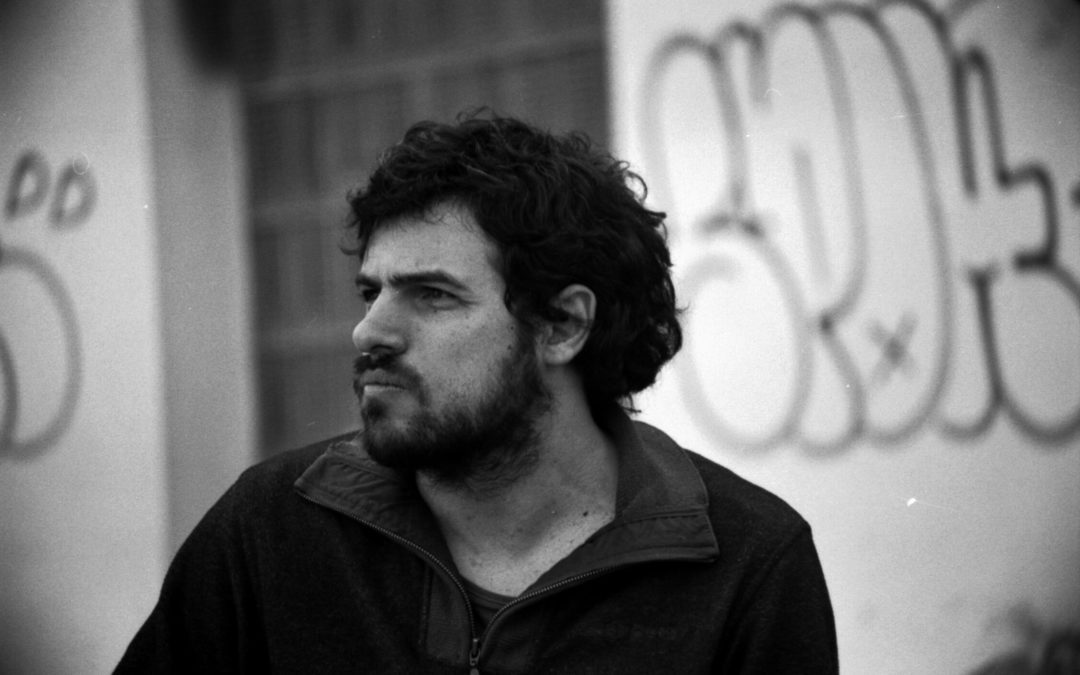
by Shaun Chamberlin | Jul 25, 2011 | All Posts, Cultural stories, Economics, Favourite posts, Politics, Reviews and recommendations
I recently heard an interviewer ask someone who their heroes are, and was struck by the lack of names that came up when I asked myself the same question (although Dr. James Hansen now springs to mind...)
But now I think I have one, having discovered the brave story of Robin Bank (AKA Enric Duran). He is a Catalan activist who spent the two years to 2008 taking out loans totalling nearly half a million euros, and then donated all of the money to various social movements working to build alternatives to our unequal and suicidal economic-political system. His video message revealing what he had done and explaining his motives is posted above. I consider it one of the most inspiring stories of insight and resultant action that I have yet heard.
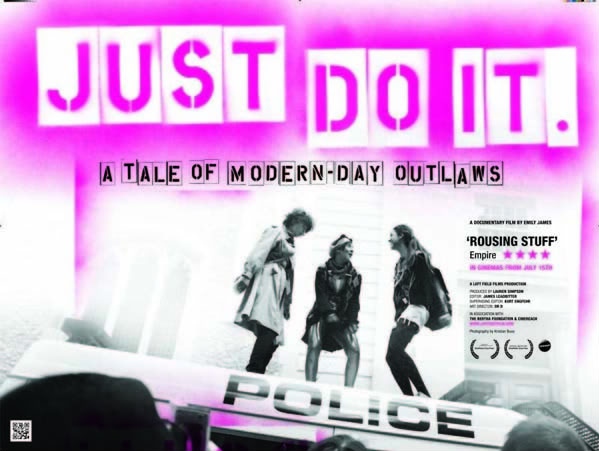
by Shaun Chamberlin | Jun 15, 2011 | All Posts, Climate Change, Cultural stories, Favourite posts, Philosophy, Transition Movement
Last night I went to the première screening of an excellent new film called Just Do It. It's a record of the direct action climate movement - Climate Camp, Plane Stupid et al. - made with the full cooperation of the activists, and it's worth checking out, especially if you've never been directly involved yourself.
It is a story of people responding to the threat to their future with courage, determination, humour and camaraderie. It's also a film that I remember existing only as a flyer, asking whether we would like to see a truly independent film developed outside mainstream production models and distributed for free. Hundreds of us donated, and I was keen to see the result.
After the screening, there was a Q&A session with the director, Emily James, but I found myself sitting there with a question in my head that was prompted by the film, but was refusing to form itself into anything concise and coherent. It was connected with that dreaded thought that everyone involved with any form of heartfelt climate action knows only too well - but what if it's all too late?
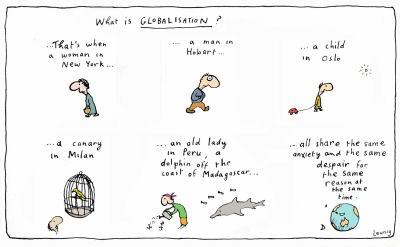 Let me explain. The footage in the film is from 2009 - the buildup to the Copenhagen climate conference in December of that year. It briefly reminds its audience of all the climate science that was marshalled back then to make clear that this was our last hope at curbing emissions to prevent the climate system hurtling off into unstoppable destabilisation. And then, of course, it reminds us of the abject failure this grand conference produced...
One of the most affecting moments in the film was the close-up on one inspiring activist's face as she is asked "but does all this actually achieve anything?" She searches her mind, begins to speak, hesitates, starts again, and stops. Then her eyes seem to look into her heart and soul, and maybe even to shy away from some of the things they see there, before, as I remember, she settles upon "well, it's better than doing nothing".
To me, it was a sad moment, and a question that seemed unresolved, even as the film ended by reminding us that the Heathrow runway expansion has been cancelled, that the Kingsnorth coal power plant plans have been scrapped, and that projects like the exciting Transition Heathrow are growing up where only tarmac and fumes would otherwise have been.
Let me explain. The footage in the film is from 2009 - the buildup to the Copenhagen climate conference in December of that year. It briefly reminds its audience of all the climate science that was marshalled back then to make clear that this was our last hope at curbing emissions to prevent the climate system hurtling off into unstoppable destabilisation. And then, of course, it reminds us of the abject failure this grand conference produced...
One of the most affecting moments in the film was the close-up on one inspiring activist's face as she is asked "but does all this actually achieve anything?" She searches her mind, begins to speak, hesitates, starts again, and stops. Then her eyes seem to look into her heart and soul, and maybe even to shy away from some of the things they see there, before, as I remember, she settles upon "well, it's better than doing nothing".
To me, it was a sad moment, and a question that seemed unresolved, even as the film ended by reminding us that the Heathrow runway expansion has been cancelled, that the Kingsnorth coal power plant plans have been scrapped, and that projects like the exciting Transition Heathrow are growing up where only tarmac and fumes would otherwise have been.
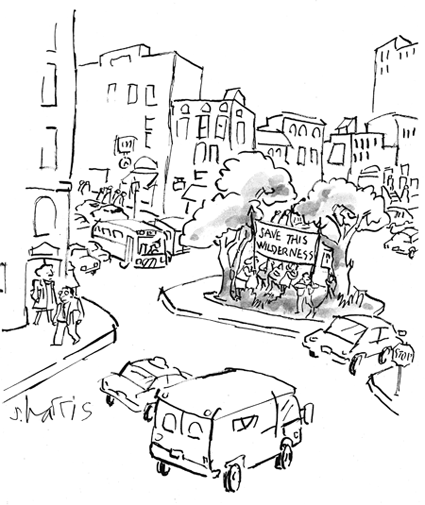 As the deserved applause rang to the credits, I tried to figure out how to formulate this sadness into a question. Eventually, as the Q&A session moved towards its end, I gave up on producing any pithy question, but resolved nonetheless to share the journey I had personally been taken on by watching the film.
And as I spoke, I realised that there is a better answer to that question – does all this actually achieve anything? – than the one spoken in the film. It is the one that is lived by the people portrayed in it.
As my mess of a question/journey/statement tumbled out, and this realisation took form, I found myself ending with a quote from Paul Wellstone, “If we don’t fight hard enough for the things we stand for, at some point we have to recognise that we don’t really stand for them.”
This seemed to ring true, with Emily James responding that she was glad that this question had been asked, and that that quote reflected her experience - that even if we were to lose our struggle for a future, we would want to have lived our present honestly as who we are. In my imagination, it seemed as though she were saying that we sometimes have to put our bodies on the line to save our souls.
As the deserved applause rang to the credits, I tried to figure out how to formulate this sadness into a question. Eventually, as the Q&A session moved towards its end, I gave up on producing any pithy question, but resolved nonetheless to share the journey I had personally been taken on by watching the film.
And as I spoke, I realised that there is a better answer to that question – does all this actually achieve anything? – than the one spoken in the film. It is the one that is lived by the people portrayed in it.
As my mess of a question/journey/statement tumbled out, and this realisation took form, I found myself ending with a quote from Paul Wellstone, “If we don’t fight hard enough for the things we stand for, at some point we have to recognise that we don’t really stand for them.”
This seemed to ring true, with Emily James responding that she was glad that this question had been asked, and that that quote reflected her experience - that even if we were to lose our struggle for a future, we would want to have lived our present honestly as who we are. In my imagination, it seemed as though she were saying that we sometimes have to put our bodies on the line to save our souls.
 The next question from the audience was a response to this, and a simple and interesting one - "so is activism therapy then?". The response from Emily was an enthusiastic "yes", and an explanation of how the process has helped many people to rediscover themselves and their joy in life, and of what an exceptionally supportive community there is among activists.
But I felt that this perhaps wasn't the most interesting thrust behind the question. To me the question hit home more as "so is activism only therapy then"? In other words, are you activists only pretending to be doing this to change the world, when really you're just trying to make yourselves feel better about the understanding that you can't?
And to this, as to all the best questions, the answer seems to be "er, yes and no. It's a bit more complicated than that"!
Because of course we act in order to change the world. And change it we do. Indeed, as a friend says, we cannot not change the world, whatever any of us choose to do. And as we change it, it changes us. And as it changes us, we change it. We are all activists.
And if the story we tell with these changes is one that we are proud to be telling, to the very core of our being, then activism is certainly therapeutic. But that kind of activism is not 'only therapeutic', it is spiritual. It is simply an expression of what we believe life to be for.
The next question from the audience was a response to this, and a simple and interesting one - "so is activism therapy then?". The response from Emily was an enthusiastic "yes", and an explanation of how the process has helped many people to rediscover themselves and their joy in life, and of what an exceptionally supportive community there is among activists.
But I felt that this perhaps wasn't the most interesting thrust behind the question. To me the question hit home more as "so is activism only therapy then"? In other words, are you activists only pretending to be doing this to change the world, when really you're just trying to make yourselves feel better about the understanding that you can't?
And to this, as to all the best questions, the answer seems to be "er, yes and no. It's a bit more complicated than that"!
Because of course we act in order to change the world. And change it we do. Indeed, as a friend says, we cannot not change the world, whatever any of us choose to do. And as we change it, it changes us. And as it changes us, we change it. We are all activists.
And if the story we tell with these changes is one that we are proud to be telling, to the very core of our being, then activism is certainly therapeutic. But that kind of activism is not 'only therapeutic', it is spiritual. It is simply an expression of what we believe life to be for.
 So the thought-provoking activist in the film was right - acting in some way to reflect our beliefs in our actions is indeed better than quietly dying inside, no matter what the external consequences. Perhaps Wendell Berry said it best,
So the thought-provoking activist in the film was right - acting in some way to reflect our beliefs in our actions is indeed better than quietly dying inside, no matter what the external consequences. Perhaps Wendell Berry said it best,
“Protest that endures, I think, is moved by a hope far more modest than that of public success, namely, the hope of preserving qualities in one's own heart and spirit that would be destroyed by acquiescence.”
But this is different from those times when activism is based on a lie - when acting is simply easier than admitting that you don't really believe that these actions can create the change you want to see. This kind of activism probably deserves to be challenged as 'only therapy', and a dangerous, deceitful kind of therapy at that.
...And of course there's only one reason why that audience question struck a painful chord for me, and prompted this rare blog post. It's because I've indulged in a bit of that in my time - ignoring the quiet inner voice that whispers the truth, telling me that the course I have chosen is futile, or counter-productive, or simply no longer a reflection of my highest truth. As Vanessa Spedding has it,
“It would be interesting if all campaigners did this: stopped, went home, and considered what we are really doing with our time and our ideas. Striving to be true to ourselves would seem to be a sensible first goal.”
This is exactly what I am trying to do at present, hence the lack of speaking, writing etc of late. I am very much in a listening phase, rather than a speaking one, and that feels very right. After last night's interesting excursion, I have just ordered a copy of the provocative Deep Green Resistance, and will also be keeping an eye on the blog of one lady who is trying to find something more effective altogether than resistance. I will let you know how we get on.
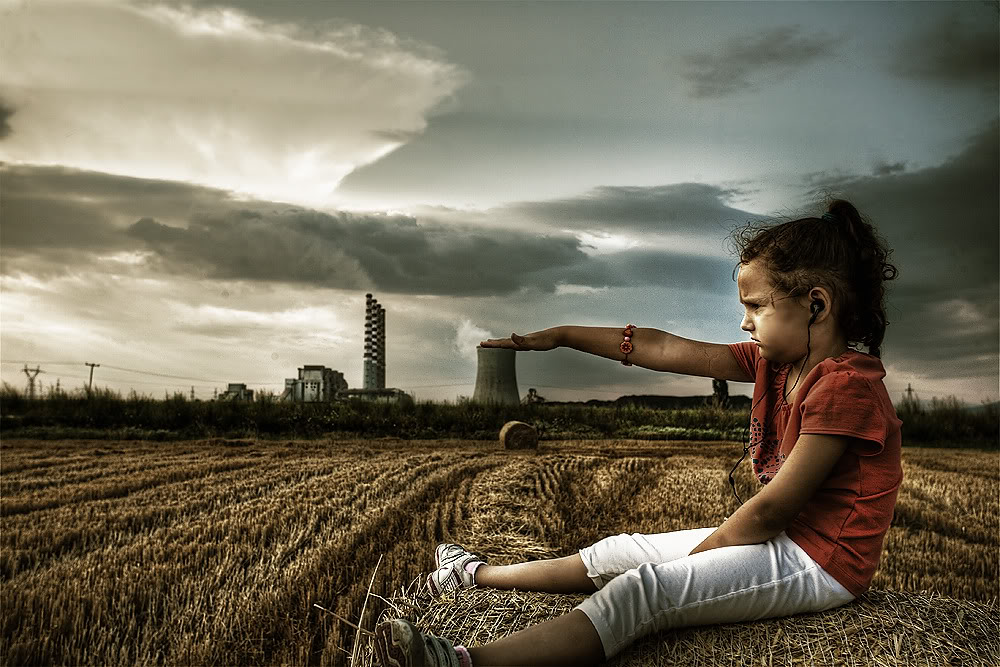
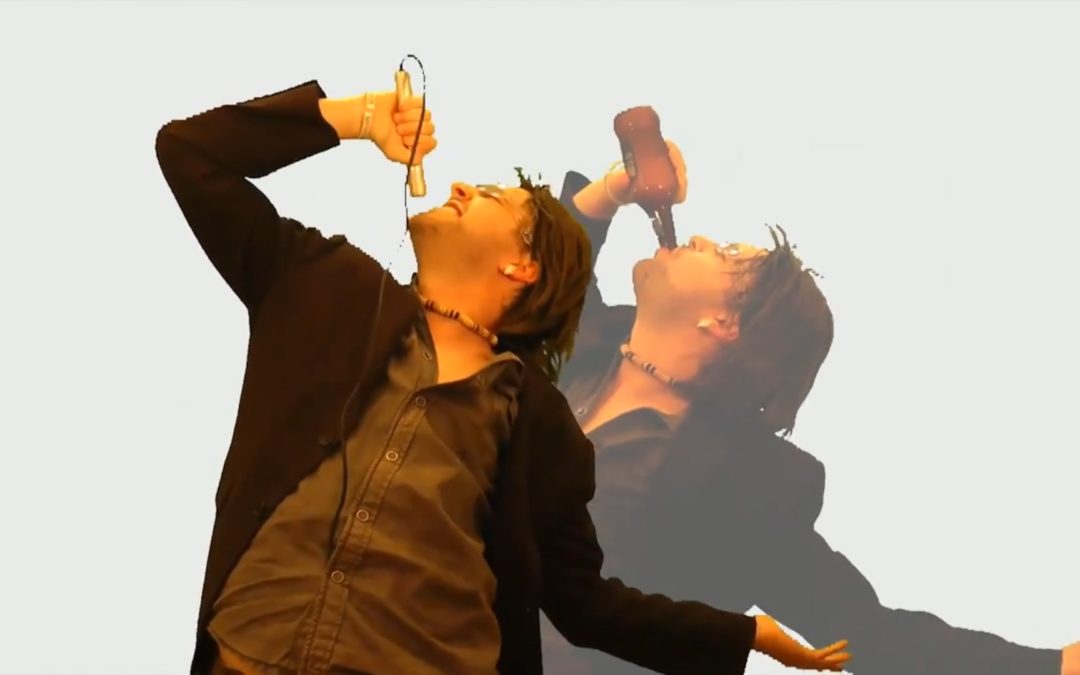
by Shaun Chamberlin | Mar 30, 2011 | All Posts, Climate Change, Cultural stories, Favourite posts, Politics, Reviews and recommendations
Robert Foster's brilliant Rap News makes it onto Dark Optimism for the second time, with a comment on recent events featuring the likes of Hugo Chavez, Glenn Beck, Bono ("Tell China to end first world debt") and John Pilger, as well as footage from the ongoing American revolution.
Well worth a watch, as is this interview, where Noam Chomsky dismantles Jeremy Paxman's worldview to his face.
Edit - 28/04/11 - And here's a sincere call for American revolution, from Adbusters.
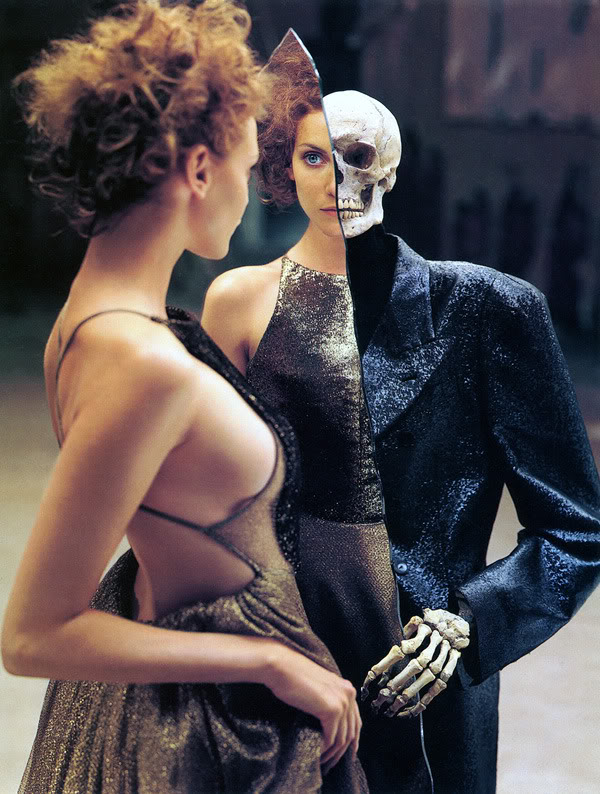
by Shaun Chamberlin | Sep 29, 2010 | All Posts, Cultural stories, Favourite posts, Philosophy, Politics, Reviews and recommendations
I have just spent an intrigued couple of hours musing over the outstanding new Common Cause report, which explores the battle over cultural values that underlies communications and marketing, while keeping one eye always on our environmental challenges.
The report has both stimulated a fair bit of controversy (as I will explore below the cut) and, excitingly, provided an answer to a question that has been bothering me for many years now, since reading Edward Bernays' influential 1928 book Propaganda.
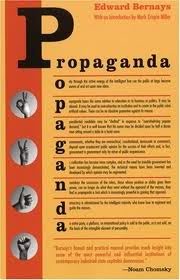 (full text available online here or here)
First, then, a little history. Bernays was the nephew of Sigmund Freud, and the pioneer founder of the industry now termed "Public Relations" (the "Propaganda" name being discarded due to associations with the German war effort). Building on his uncle's ideas about subconscious urges and desires that drive our decisions, Bernays argued that:
"The conscious and intelligent manipulation of the organized habits and opinions of the masses is an important element in democratic society… We are governed, our minds are moulded, our tastes formed, our ideas suggested, largely by men we have never heard of. This is a logical result of the way in which our democratic society is organized. Vast numbers of human beings must cooperate in this manner if they are to live together as a smoothly functioning society...In almost every act of our daily lives...we are dominated by the relatively small number of persons...who understand the mental processes and social patterns of the masses."
To my mind this is pretty distasteful stuff, but it has undoubtedly proved a significant force in shaping the consumerist society around us. We may disapprove of the marketers, PR men and spin doctors invading our minds at every opportunity, but we cannot deny the power of the techniques Bernays developed.
(full text available online here or here)
First, then, a little history. Bernays was the nephew of Sigmund Freud, and the pioneer founder of the industry now termed "Public Relations" (the "Propaganda" name being discarded due to associations with the German war effort). Building on his uncle's ideas about subconscious urges and desires that drive our decisions, Bernays argued that:
"The conscious and intelligent manipulation of the organized habits and opinions of the masses is an important element in democratic society… We are governed, our minds are moulded, our tastes formed, our ideas suggested, largely by men we have never heard of. This is a logical result of the way in which our democratic society is organized. Vast numbers of human beings must cooperate in this manner if they are to live together as a smoothly functioning society...In almost every act of our daily lives...we are dominated by the relatively small number of persons...who understand the mental processes and social patterns of the masses."
To my mind this is pretty distasteful stuff, but it has undoubtedly proved a significant force in shaping the consumerist society around us. We may disapprove of the marketers, PR men and spin doctors invading our minds at every opportunity, but we cannot deny the power of the techniques Bernays developed.
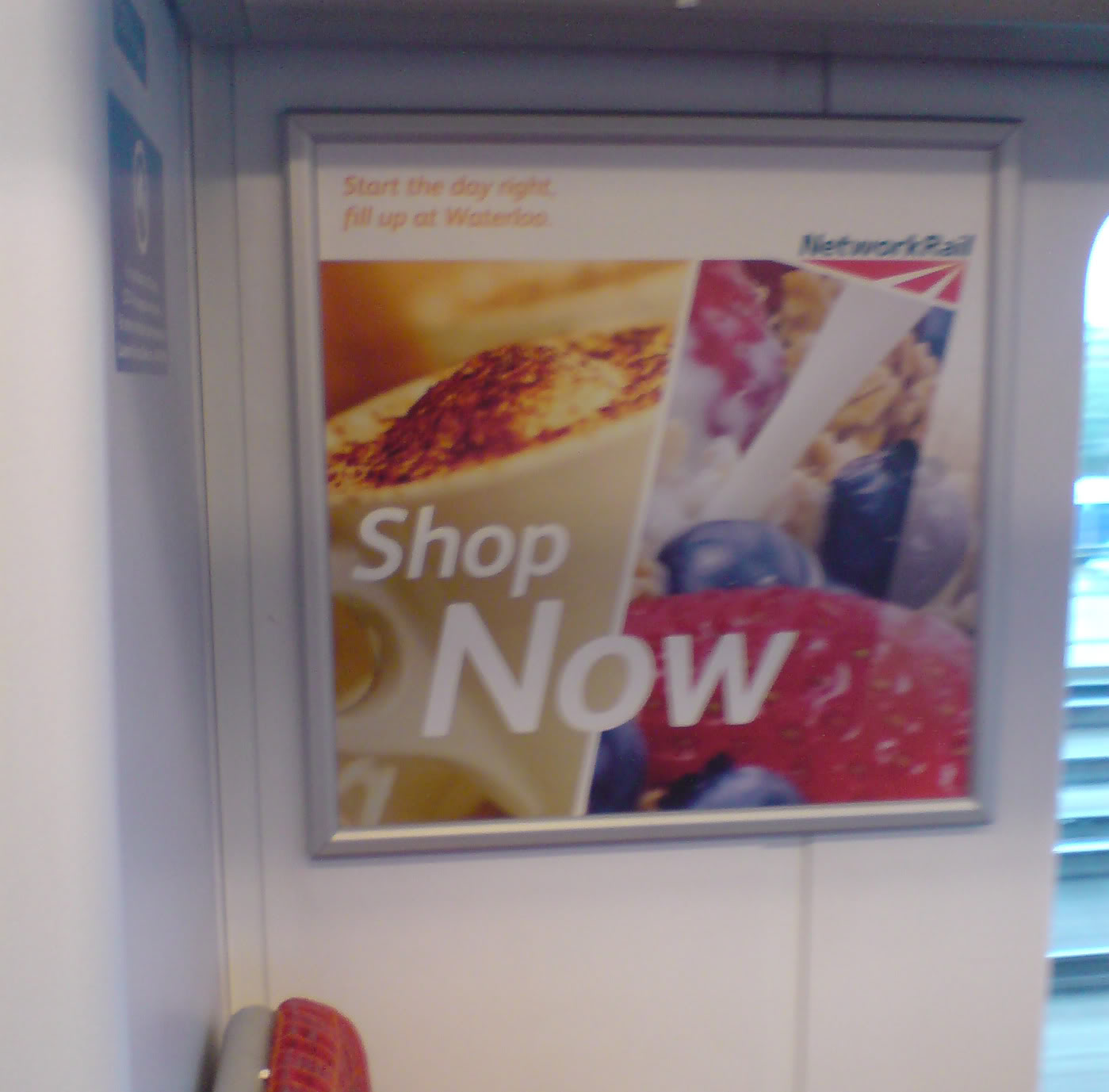 All of which brings us back to that uncomfortable question: given the urgency of the peril facing our biosphere, and the potency of this approach, is there a way to justify such manipulation for the sake of preserving a future for all (as indeed many are trying to do)?
On those terms, I have always leant towards the answer "no". But Common Cause offers a potential way to harness this potency without being manipulative: transparency.
By all means understand and utilise all the power inherent in your messaging, but be explicit about the values you are trying to promote, and explain why.
Like most important insights, this solution is simple yet powerful, for by this one act you not only bring integrity to your efforts to spread the values you believe in, but also simultaneously open up an important debate over the desirability of those values AND shine a light on the dubious morality of all those doing similar work from the cover of darkness.
For me, it is a great relief to see a niggling question laid to rest in such an elegant way, and I am grateful for it.
All of which brings us back to that uncomfortable question: given the urgency of the peril facing our biosphere, and the potency of this approach, is there a way to justify such manipulation for the sake of preserving a future for all (as indeed many are trying to do)?
On those terms, I have always leant towards the answer "no". But Common Cause offers a potential way to harness this potency without being manipulative: transparency.
By all means understand and utilise all the power inherent in your messaging, but be explicit about the values you are trying to promote, and explain why.
Like most important insights, this solution is simple yet powerful, for by this one act you not only bring integrity to your efforts to spread the values you believe in, but also simultaneously open up an important debate over the desirability of those values AND shine a light on the dubious morality of all those doing similar work from the cover of darkness.
For me, it is a great relief to see a niggling question laid to rest in such an elegant way, and I am grateful for it.
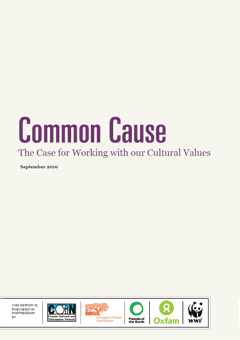 Yet in reading around the report, I discovered that others, such as Solitaire Townsend of Futerra, disagree, and forcefully so. She writes:
"The notion of changing the audience rather than the message is at the heart of (this) concept. It argues that we shouldn’t accept the basic psychology of our audience – but seek to change it.
This means re-programming people’s values away from consumption, status and selfish desires and towards collective awareness and a closer relationship with our place in the natural world. Actually this drives us (at Futerra) bonkers, especially because implicit is the message ‘if only everyone else thought and acted like us everything would be okay’.
That makes our skin crawl a bit, and we know the majority public audience hates environmental worthies suggesting there’s not only something wrong with their footprint: there’s something wrong with their personality."
I have often felt myself recoil from Futerra's approach to "promoting sustainable development", and this helped me to put my finger on why.
As report author Tom Crompton pointed out in his response, all messaging changes the audience. While I agree with Solitaire that this fact is in some ways distasteful, for me the appropriate response to this distaste is not to pretend that one's own messaging is somehow exempt from having such influence, but rather to explore the reality behind this dangerous power, and to seek a way to use it in an honest and beneficial way.
Common Cause's radical transparency provides exactly that and, promisingly, the report is supported by five influential NGOs (including, incidentally, some that I have personally decided to stop supporting).
Yet in reading around the report, I discovered that others, such as Solitaire Townsend of Futerra, disagree, and forcefully so. She writes:
"The notion of changing the audience rather than the message is at the heart of (this) concept. It argues that we shouldn’t accept the basic psychology of our audience – but seek to change it.
This means re-programming people’s values away from consumption, status and selfish desires and towards collective awareness and a closer relationship with our place in the natural world. Actually this drives us (at Futerra) bonkers, especially because implicit is the message ‘if only everyone else thought and acted like us everything would be okay’.
That makes our skin crawl a bit, and we know the majority public audience hates environmental worthies suggesting there’s not only something wrong with their footprint: there’s something wrong with their personality."
I have often felt myself recoil from Futerra's approach to "promoting sustainable development", and this helped me to put my finger on why.
As report author Tom Crompton pointed out in his response, all messaging changes the audience. While I agree with Solitaire that this fact is in some ways distasteful, for me the appropriate response to this distaste is not to pretend that one's own messaging is somehow exempt from having such influence, but rather to explore the reality behind this dangerous power, and to seek a way to use it in an honest and beneficial way.
Common Cause's radical transparency provides exactly that and, promisingly, the report is supported by five influential NGOs (including, incidentally, some that I have personally decided to stop supporting).
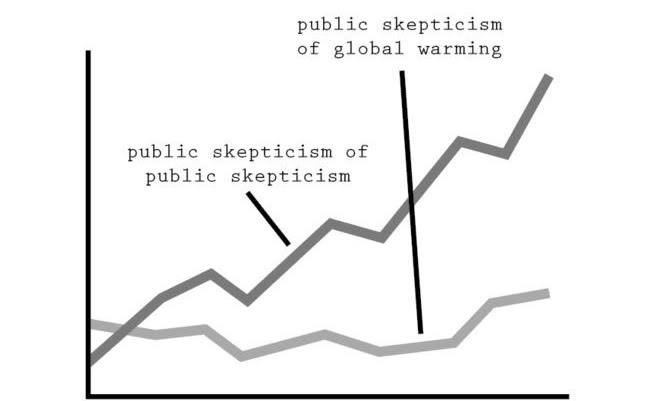 But I think there is a wider issue rearing its head here too; a logical flaw that underpins much modern discussion, especially when it comes to our environmental challenges.
When Solitaire goes on to argue that "we don't have time for a cultural shift" and so that we must engage with people where they're at, her argument is that approach A can't possibly work, so we must try approach B.
We see the same form of argument all over the place. Renewables can't scale up quickly enough to replace fossil fuels so we must have nuclear power. The Conservatives and Liberal Democrats aren't running the country well, so we must vote Labour. And on and on.
But the premisses and the conclusion do not join up. Even if we accept that A doesn't work, it doesn't necessarily mean that B will. Indeed, B could be far far worse, this argument just doesn't tell us. This much is evident at a glance, yet still this form of argument is everywhere, and generally treated with respect.
The alternative is to face the possibility that maybe none of the options presented are satisfactory. Maybe we truly don't have time for a cultural revolution AND 'ethical consumerism' truly can't save the world. Maybe neither renewables NOR nuclear can sustain a consumerist society over the coming decades. And so on...
It is when we explore this space - when we consider the evidence on all the propositions, rather than assuming that the last remaining option simply MUST work - that we start to consider reality, and thus open the door to true creativity.
But I think there is a wider issue rearing its head here too; a logical flaw that underpins much modern discussion, especially when it comes to our environmental challenges.
When Solitaire goes on to argue that "we don't have time for a cultural shift" and so that we must engage with people where they're at, her argument is that approach A can't possibly work, so we must try approach B.
We see the same form of argument all over the place. Renewables can't scale up quickly enough to replace fossil fuels so we must have nuclear power. The Conservatives and Liberal Democrats aren't running the country well, so we must vote Labour. And on and on.
But the premisses and the conclusion do not join up. Even if we accept that A doesn't work, it doesn't necessarily mean that B will. Indeed, B could be far far worse, this argument just doesn't tell us. This much is evident at a glance, yet still this form of argument is everywhere, and generally treated with respect.
The alternative is to face the possibility that maybe none of the options presented are satisfactory. Maybe we truly don't have time for a cultural revolution AND 'ethical consumerism' truly can't save the world. Maybe neither renewables NOR nuclear can sustain a consumerist society over the coming decades. And so on...
It is when we explore this space - when we consider the evidence on all the propositions, rather than assuming that the last remaining option simply MUST work - that we start to consider reality, and thus open the door to true creativity.
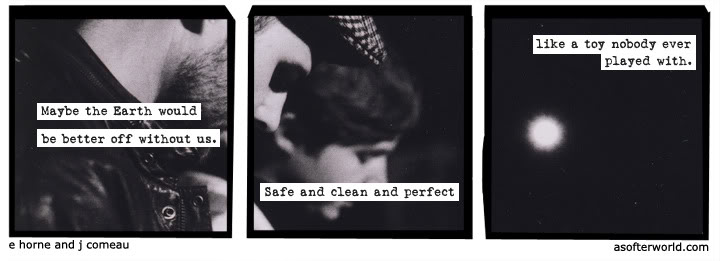 Perhaps none of the mainstream parties are satisfactory, so I should support a smaller one, or not vote at all, or start my own, or work to change the political system, or...
Perhaps none of today's technologies can power a consumerist lifestyle for all the world's people, so we need to accept vast inequalities, or reduce our energy demand, or redefine our idea of a desirable lifestyle, or...
Let's not assume that the truth must always be found laid out among the presented options.
As I mentioned in response to comments on an earlier post, I believe that refusing to flee to quick, unexamined answers is one of our key strategies at this point in human history, as the limits of our current paradigms loom ever larger. We must explore new stories.
As Rilke so beautifully put it:
“Be patient toward all that is unsolved in your heart and try to love the questions themselves. Do not now seek the answers, which cannot be given you because you would not be able to live them. And the point is to live everything. Live your questions now, and perhaps even without knowing it, you will live along some distant day into your answers.”
Perhaps none of the mainstream parties are satisfactory, so I should support a smaller one, or not vote at all, or start my own, or work to change the political system, or...
Perhaps none of today's technologies can power a consumerist lifestyle for all the world's people, so we need to accept vast inequalities, or reduce our energy demand, or redefine our idea of a desirable lifestyle, or...
Let's not assume that the truth must always be found laid out among the presented options.
As I mentioned in response to comments on an earlier post, I believe that refusing to flee to quick, unexamined answers is one of our key strategies at this point in human history, as the limits of our current paradigms loom ever larger. We must explore new stories.
As Rilke so beautifully put it:
“Be patient toward all that is unsolved in your heart and try to love the questions themselves. Do not now seek the answers, which cannot be given you because you would not be able to live them. And the point is to live everything. Live your questions now, and perhaps even without knowing it, you will live along some distant day into your answers.”
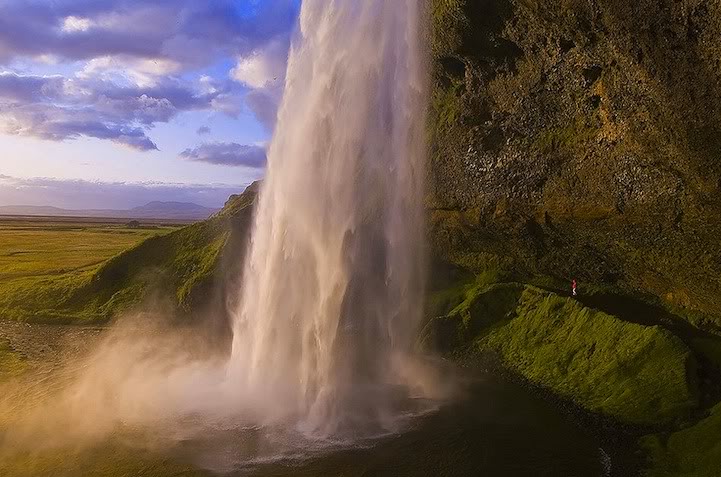
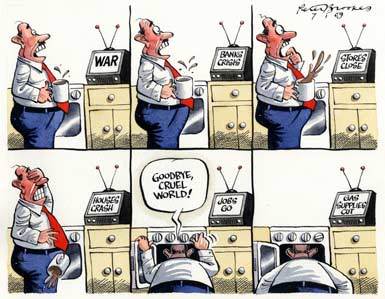
by Shaun Chamberlin | Jun 15, 2010 | All Posts, Economics, Favourite posts, Peak Oil, Transition Movement
This post was originally written by me as a guest post for Rob Hopkins' Transition Culture blog, but I have kindly given myself permission to reproduce it here ;)
So here I am. I fully intended to be giving the England match my full attention right now, but I've been left distinctly restive by this afternoon's long session by Stoneleigh of The Automatic Earth, and feel the need to put some thoughts down.
Including the extensive Q&A session her talk lasted virtually three hours and covered a lot of ground, starting from a good runthrough of the 'peak energy' situation, but quickly focusing in on finance, as she believes that this is the factor that will most dramatically shape our immediate future. Notably, the talk attracted almost half the attendees of the Transition Conference, despite the numerous other Open Space sessions taking place at the same time.
For me her analysis helped to bridge the gap between comprehension and real understanding. I always feel that I don't have a genuine opinion on something until I can listen to someone argue one point of view, then listen to someone argue the opposite, and truly understand what the root of their disagreement is, so that I can make up my own mind. With finance I have always felt unable to get to the root of the disagreement between those who forecast a cataclysm in the coming years, and those who argue that the system is far more resilient than some give it credit for.
That feeling has not been totally banished, but Stoneleigh (both today and in a bar-room chat until 2am last night) really helped me to close some big gaps.
She has agreed to email me her slides, but essentially her position is that we are just slipping over the edge into the greatest financial Depression the world has ever seen, off the back of the biggest financial bubble the world has ever seen. This will, of course, bring significant personal consequences for individuals, families and communities.
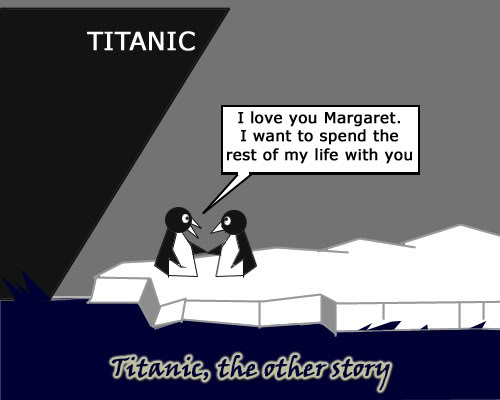 Consequently, her absolute #1 piece of advice to all and sundry is to get out of debt, as debts that may seem manageable now are unlikely to remain so as interest rates soar and property prices plummet (perhaps back to somewhere in the region of their 1970 values). Meanwhile, existing mortgage debts will stubbornly remain just as large, leaving many people in the ordeal of negative equity - their mortgage debt being bigger than the value of their house.
She also explained the 'derivatives' market in a usefully clear way. Whereas many of the world's money-making schemes are based on cutting the proverbial cake into smaller and smaller slices, this system is based on giving more and more people rights over a single slice of cake. As this system unravels (as it surely must at some point, since not every claimant can have their cake to eat it), the bulk of the world's money will essentially disappear, creating huge deflation. There will be less money in circulation relative to the amount of stuff, so the value of the money that people do have will actually go up, while earnings drop. As she pointed out, the key issue to be concerned with is 'affordability' not inflation, deflation, wages or anything else. How much useful stuff can you buy with what you have?
While not explicit about it as such, she seemed to be ranking the kinds of assets we might hold in terms of risk. In order, starting with the most desirable, that list was:
Useful assets - e.g. tools, land, a home that you want to live in, and that can supply what you need etc...
Cash - as deflation is likely to raise the value of cash, it's a good thing to have, but cash in bank accounts is quite liable to evaporate. In response to the inevitable question of where we should keep cash, her repeated answer was "be creative".
Gilts - Given that holding massive amounts of cash is both impractical and likely to arouse suspicion, she suggested gilts as the next least-risky place to put money.
Interestingly though, she believes that while useful productive assets are the most important thing (these are, after all, the source of our ability to support our communities and ourselves), she also pointed out that the price of such assets is likely to drop as the crisis tightens.
Consequently, her absolute #1 piece of advice to all and sundry is to get out of debt, as debts that may seem manageable now are unlikely to remain so as interest rates soar and property prices plummet (perhaps back to somewhere in the region of their 1970 values). Meanwhile, existing mortgage debts will stubbornly remain just as large, leaving many people in the ordeal of negative equity - their mortgage debt being bigger than the value of their house.
She also explained the 'derivatives' market in a usefully clear way. Whereas many of the world's money-making schemes are based on cutting the proverbial cake into smaller and smaller slices, this system is based on giving more and more people rights over a single slice of cake. As this system unravels (as it surely must at some point, since not every claimant can have their cake to eat it), the bulk of the world's money will essentially disappear, creating huge deflation. There will be less money in circulation relative to the amount of stuff, so the value of the money that people do have will actually go up, while earnings drop. As she pointed out, the key issue to be concerned with is 'affordability' not inflation, deflation, wages or anything else. How much useful stuff can you buy with what you have?
While not explicit about it as such, she seemed to be ranking the kinds of assets we might hold in terms of risk. In order, starting with the most desirable, that list was:
Useful assets - e.g. tools, land, a home that you want to live in, and that can supply what you need etc...
Cash - as deflation is likely to raise the value of cash, it's a good thing to have, but cash in bank accounts is quite liable to evaporate. In response to the inevitable question of where we should keep cash, her repeated answer was "be creative".
Gilts - Given that holding massive amounts of cash is both impractical and likely to arouse suspicion, she suggested gilts as the next least-risky place to put money.
Interestingly though, she believes that while useful productive assets are the most important thing (these are, after all, the source of our ability to support our communities and ourselves), she also pointed out that the price of such assets is likely to drop as the crisis tightens.
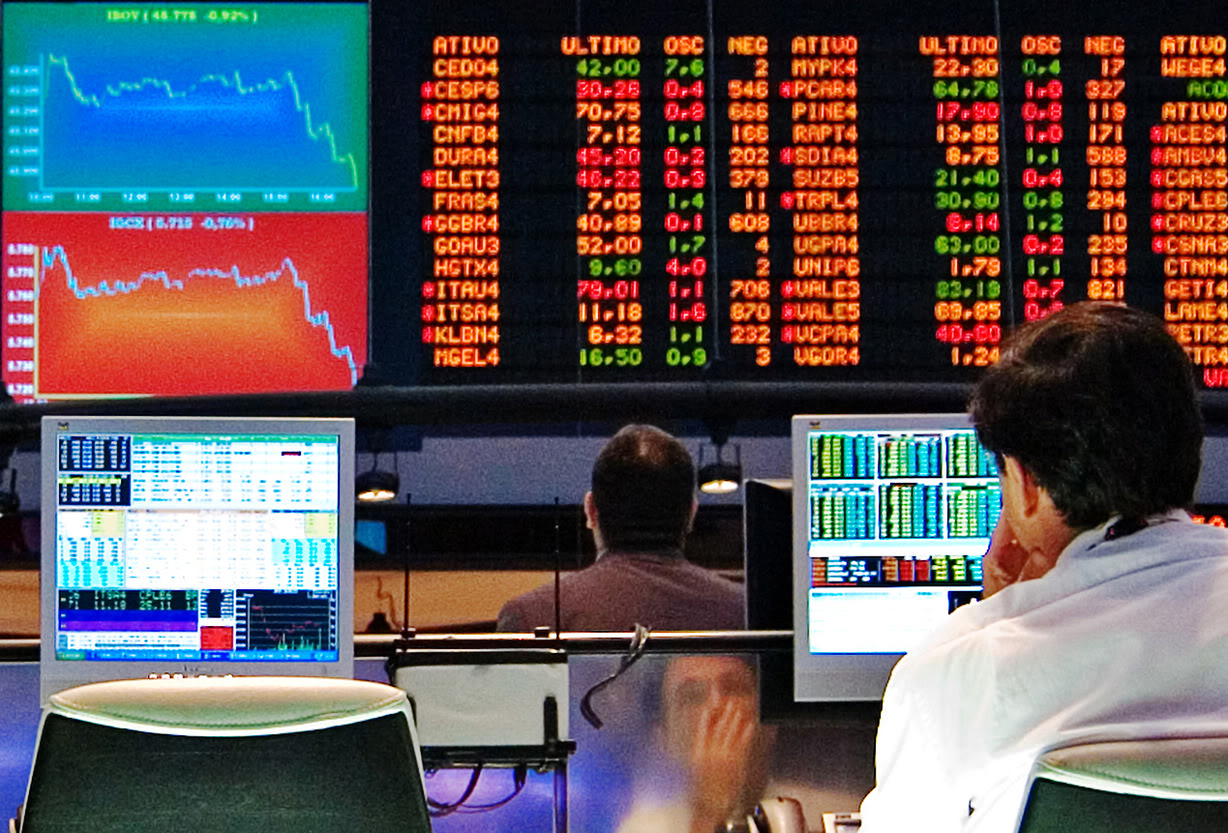 Accordingly, she counselled that one possible course of action for those unable to afford the productive assets they need (land, say) without going into debt, could be to minimise their exposure to the crash, preserve any cash that they can, and then buy more cheaply further down the slope. Those who can afford to buy outright now though, would be well-advised to do so, as while their assets, land etc. may decrease in value, this is of less significance if they plan to hold on to these assets long-term anyway, and in return they are buying themselves time to learn to use these 'tools', before they are relying on them.
As she spoke, the room was hushed and fiercely attentive, and you could see people absorbing the implications of what she said for their own financial plans, and those of their communities and families.
One very interesting question was from a Transitioner who is considering setting up a community-owned renewables project, based on taking out a loan to install PV, and paying back the loan on the basis of the Government's feed-in tariffs. Stoneleigh argued that in the current situation, any Government guarantee to do anything over the next 20-25 years is barely worth the paper it's written on, and so she would advise that such projects should be undertaken either without going into debt or not at all.
Above all, she stressed the urgency of the situation, and that we should not expect the financial situation to look at all like it does now in just a couple of years time.
Accordingly, she counselled that one possible course of action for those unable to afford the productive assets they need (land, say) without going into debt, could be to minimise their exposure to the crash, preserve any cash that they can, and then buy more cheaply further down the slope. Those who can afford to buy outright now though, would be well-advised to do so, as while their assets, land etc. may decrease in value, this is of less significance if they plan to hold on to these assets long-term anyway, and in return they are buying themselves time to learn to use these 'tools', before they are relying on them.
As she spoke, the room was hushed and fiercely attentive, and you could see people absorbing the implications of what she said for their own financial plans, and those of their communities and families.
One very interesting question was from a Transitioner who is considering setting up a community-owned renewables project, based on taking out a loan to install PV, and paying back the loan on the basis of the Government's feed-in tariffs. Stoneleigh argued that in the current situation, any Government guarantee to do anything over the next 20-25 years is barely worth the paper it's written on, and so she would advise that such projects should be undertaken either without going into debt or not at all.
Above all, she stressed the urgency of the situation, and that we should not expect the financial situation to look at all like it does now in just a couple of years time.
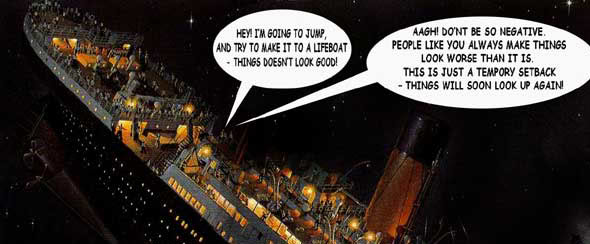 In my one-to-one chat with her on Friday night, I asked her about my Student Loan, which is currently about the most benign loan imaginable, with a rate of interest generally lower than that available on tax-free savings accounts. She argued that I should pay it off as soon as possible nonetheless, even if that takes all the money I have, as savings in the bank are at a significant risk of disappearing, whereas loans never die. Indeed, they tend to be sold on down the line until you find yourself in debt to someone rather unpleasant.
We also talked about the best ways forward, given the difficult situation in which we find ourselves. We both believe that social ties are the most valuable asset we can possibly have, and that building these networks of trust is the most important work we can do.
She spoke of the example of the Great Depression of the 1930s, in which despite an abundance of food, fuel, resources and manpower, the whole system ground to a halt due to the unavailability of money to connect buyers and sellers. It reached the point where farmers were pouring away perfectly good milk while people starved up the road.
This put me in mind of Mark Boyle, the Moneyless Man, who I finally met for the first time at the Uncivilisation festival a couple of weeks ago. It strikes me that the simple idea of the gift economy - or Freeconomy - that he is practising, is exactly what was needed in that situation. If the farmers and the hungry had trusted each other, then without money, or indeed any other kind of transaction, a human can give another human food just for the love of it. And if the farmer needed help on his farm, then others might help for similar reasons. Perhaps if those needs coincide then barter might take place, but where they do not, the simple desire to help each other, and the trust that others will help out when you need something, could have got that society functioning again.
In my one-to-one chat with her on Friday night, I asked her about my Student Loan, which is currently about the most benign loan imaginable, with a rate of interest generally lower than that available on tax-free savings accounts. She argued that I should pay it off as soon as possible nonetheless, even if that takes all the money I have, as savings in the bank are at a significant risk of disappearing, whereas loans never die. Indeed, they tend to be sold on down the line until you find yourself in debt to someone rather unpleasant.
We also talked about the best ways forward, given the difficult situation in which we find ourselves. We both believe that social ties are the most valuable asset we can possibly have, and that building these networks of trust is the most important work we can do.
She spoke of the example of the Great Depression of the 1930s, in which despite an abundance of food, fuel, resources and manpower, the whole system ground to a halt due to the unavailability of money to connect buyers and sellers. It reached the point where farmers were pouring away perfectly good milk while people starved up the road.
This put me in mind of Mark Boyle, the Moneyless Man, who I finally met for the first time at the Uncivilisation festival a couple of weeks ago. It strikes me that the simple idea of the gift economy - or Freeconomy - that he is practising, is exactly what was needed in that situation. If the farmers and the hungry had trusted each other, then without money, or indeed any other kind of transaction, a human can give another human food just for the love of it. And if the farmer needed help on his farm, then others might help for similar reasons. Perhaps if those needs coincide then barter might take place, but where they do not, the simple desire to help each other, and the trust that others will help out when you need something, could have got that society functioning again.
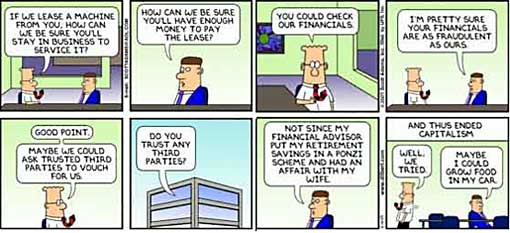 But as Stoneleigh pointed out, the key is building that trust ahead of time. In difficult times, your bonds with those you trust naturally becomes even tighter, as you rely on each other more, but your mistrust for those outside your circle can also increase, as you worry that perhaps they are just after what little you have.
Transition has always sought to widen and strengthen those circles, and that still looks like the most important work we can be doing, but Stoneleigh hopes to suggest a few tweaks to our tactics, as well as underscoring the sense of urgency.
A number of other Transitioners have already spoken to me about being rather shaken by Stoneleigh's talk, but as she kept emphasising, we are doing the right work. Critical work.
(Edit - 03/10/10 Stoneleigh's powerful talk is now available for purchase here.)
ps And England drew 1-1, but somehow that doesn't seem like the most important thing I learnt today!
But as Stoneleigh pointed out, the key is building that trust ahead of time. In difficult times, your bonds with those you trust naturally becomes even tighter, as you rely on each other more, but your mistrust for those outside your circle can also increase, as you worry that perhaps they are just after what little you have.
Transition has always sought to widen and strengthen those circles, and that still looks like the most important work we can be doing, but Stoneleigh hopes to suggest a few tweaks to our tactics, as well as underscoring the sense of urgency.
A number of other Transitioners have already spoken to me about being rather shaken by Stoneleigh's talk, but as she kept emphasising, we are doing the right work. Critical work.
(Edit - 03/10/10 Stoneleigh's powerful talk is now available for purchase here.)
ps And England drew 1-1, but somehow that doesn't seem like the most important thing I learnt today!
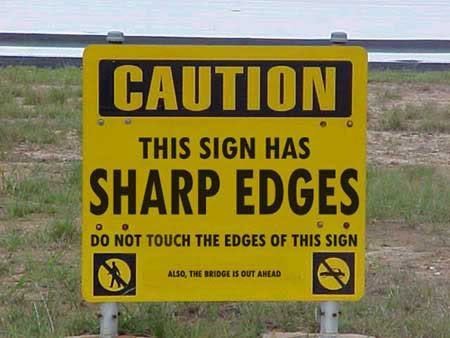 Shaun is a co-founder of Transition Town Kingston and the author of The Transition Timeline. He writes at www.darkoptimism.org
Shaun is a co-founder of Transition Town Kingston and the author of The Transition Timeline. He writes at www.darkoptimism.org

by Shaun Chamberlin | Jun 9, 2010 | All Posts, Climate Change, Cultural stories, Favourite posts, Peak Oil, TEQs (Tradable Energy Quotas), The Transition Timeline, Transition Movement
https://www.darkoptimism.org/wp-content/uploads/2020/10/10-03-26-Radio-EcoShock_Chamberlin_LoFi.mp3 Christopher Fraser of London Transition has kindly transcribed the above popular interview with Canada’s Radio Ecoshock that I posted a couple of months back....




 As the deserved applause rang to the credits, I tried to figure out how to formulate this sadness into a question. Eventually, as the Q&A session moved towards its end, I gave up on producing any pithy question, but resolved nonetheless to share the journey I had personally been taken on by watching the film.
And as I spoke, I realised that there is a better answer to that question – does all this actually achieve anything? – than the one spoken in the film. It is the one that is lived by the people portrayed in it.
As my mess of a question/journey/statement tumbled out, and this realisation took form, I found myself ending with a quote from Paul Wellstone, “If we don’t fight hard enough for the things we stand for, at some point we have to recognise that we don’t really stand for them.”
This seemed to ring true, with Emily James responding that she was glad that this question had been asked, and that that quote reflected her experience - that even if we were to lose our struggle for a future, we would want to have lived our present honestly as who we are. In my imagination, it seemed as though she were saying that we sometimes have to put our bodies on the line to save our souls.
As the deserved applause rang to the credits, I tried to figure out how to formulate this sadness into a question. Eventually, as the Q&A session moved towards its end, I gave up on producing any pithy question, but resolved nonetheless to share the journey I had personally been taken on by watching the film.
And as I spoke, I realised that there is a better answer to that question – does all this actually achieve anything? – than the one spoken in the film. It is the one that is lived by the people portrayed in it.
As my mess of a question/journey/statement tumbled out, and this realisation took form, I found myself ending with a quote from Paul Wellstone, “If we don’t fight hard enough for the things we stand for, at some point we have to recognise that we don’t really stand for them.”
This seemed to ring true, with Emily James responding that she was glad that this question had been asked, and that that quote reflected her experience - that even if we were to lose our struggle for a future, we would want to have lived our present honestly as who we are. In my imagination, it seemed as though she were saying that we sometimes have to put our bodies on the line to save our souls.
 The next question from the audience was a response to this, and a simple and interesting one - "so is activism therapy then?". The response from Emily was an enthusiastic "yes", and an explanation of how the process has helped many people to rediscover themselves and their joy in life, and of what an exceptionally supportive community there is among activists.
But I felt that this perhaps wasn't the most interesting thrust behind the question. To me the question hit home more as "so is activism only therapy then"? In other words, are you activists only pretending to be doing this to change the world, when really you're just trying to make yourselves feel better about the understanding that you can't?
And to this, as to all the best questions, the answer seems to be "er, yes and no. It's a bit more complicated than that"!
Because of course we act in order to change the world. And change it we do. Indeed, as a friend says, we cannot not change the world, whatever any of us choose to do. And as we change it, it changes us. And as it changes us, we change it. We are all activists.
And if the story we tell with these changes is one that we are proud to be telling, to the very core of our being, then activism is certainly therapeutic. But that kind of activism is not 'only therapeutic', it is spiritual. It is simply an expression of what we believe life to be for.
The next question from the audience was a response to this, and a simple and interesting one - "so is activism therapy then?". The response from Emily was an enthusiastic "yes", and an explanation of how the process has helped many people to rediscover themselves and their joy in life, and of what an exceptionally supportive community there is among activists.
But I felt that this perhaps wasn't the most interesting thrust behind the question. To me the question hit home more as "so is activism only therapy then"? In other words, are you activists only pretending to be doing this to change the world, when really you're just trying to make yourselves feel better about the understanding that you can't?
And to this, as to all the best questions, the answer seems to be "er, yes and no. It's a bit more complicated than that"!
Because of course we act in order to change the world. And change it we do. Indeed, as a friend says, we cannot not change the world, whatever any of us choose to do. And as we change it, it changes us. And as it changes us, we change it. We are all activists.
And if the story we tell with these changes is one that we are proud to be telling, to the very core of our being, then activism is certainly therapeutic. But that kind of activism is not 'only therapeutic', it is spiritual. It is simply an expression of what we believe life to be for.
 So the thought-provoking activist in the film was right - acting in some way to reflect our beliefs in our actions is indeed better than quietly dying inside, no matter what the external consequences. Perhaps Wendell Berry said it best,
So the thought-provoking activist in the film was right - acting in some way to reflect our beliefs in our actions is indeed better than quietly dying inside, no matter what the external consequences. Perhaps Wendell Berry said it best,



 (full text available online here or here)
(full text available online here or here) All of which brings us back to that uncomfortable question: given the urgency of the peril facing our biosphere, and the potency of this approach, is there a way to justify such manipulation for the sake of preserving a future for all (as indeed many are trying to do)?
On those terms, I have always leant towards the answer "no". But Common Cause offers a potential way to harness this potency without being manipulative: transparency.
By all means understand and utilise all the power inherent in your messaging, but be explicit about the values you are trying to promote, and explain why.
Like most important insights, this solution is simple yet powerful, for by this one act you not only bring integrity to your efforts to spread the values you believe in, but also simultaneously open up an important debate over the desirability of those values AND shine a light on the dubious morality of all those doing similar work from the cover of darkness.
For me, it is a great relief to see a niggling question laid to rest in such an elegant way, and I am grateful for it.
All of which brings us back to that uncomfortable question: given the urgency of the peril facing our biosphere, and the potency of this approach, is there a way to justify such manipulation for the sake of preserving a future for all (as indeed many are trying to do)?
On those terms, I have always leant towards the answer "no". But Common Cause offers a potential way to harness this potency without being manipulative: transparency.
By all means understand and utilise all the power inherent in your messaging, but be explicit about the values you are trying to promote, and explain why.
Like most important insights, this solution is simple yet powerful, for by this one act you not only bring integrity to your efforts to spread the values you believe in, but also simultaneously open up an important debate over the desirability of those values AND shine a light on the dubious morality of all those doing similar work from the cover of darkness.
For me, it is a great relief to see a niggling question laid to rest in such an elegant way, and I am grateful for it.

 But I think there is a wider issue rearing its head here too; a logical flaw that underpins much modern discussion, especially when it comes to our environmental challenges.
When Solitaire goes on to argue that "we don't have time for a cultural shift" and so that we must engage with people where they're at, her argument is that approach A can't possibly work, so we must try approach B.
We see the same form of argument all over the place. Renewables can't scale up quickly enough to replace fossil fuels so we must have nuclear power. The Conservatives and Liberal Democrats aren't running the country well, so we must vote Labour. And on and on.
But the premisses and the conclusion do not join up. Even if we accept that A doesn't work, it doesn't necessarily mean that B will. Indeed, B could be far far worse, this argument just doesn't tell us. This much is evident at a glance, yet still this form of argument is everywhere, and generally treated with respect.
The alternative is to face the possibility that maybe none of the options presented are satisfactory. Maybe we truly don't have time for a cultural revolution AND 'ethical consumerism' truly can't save the world. Maybe neither renewables NOR nuclear can sustain a consumerist society over the coming decades. And so on...
It is when we explore this space - when we consider the evidence on all the propositions, rather than assuming that the last remaining option simply MUST work - that we start to consider reality, and thus open the door to true creativity.
But I think there is a wider issue rearing its head here too; a logical flaw that underpins much modern discussion, especially when it comes to our environmental challenges.
When Solitaire goes on to argue that "we don't have time for a cultural shift" and so that we must engage with people where they're at, her argument is that approach A can't possibly work, so we must try approach B.
We see the same form of argument all over the place. Renewables can't scale up quickly enough to replace fossil fuels so we must have nuclear power. The Conservatives and Liberal Democrats aren't running the country well, so we must vote Labour. And on and on.
But the premisses and the conclusion do not join up. Even if we accept that A doesn't work, it doesn't necessarily mean that B will. Indeed, B could be far far worse, this argument just doesn't tell us. This much is evident at a glance, yet still this form of argument is everywhere, and generally treated with respect.
The alternative is to face the possibility that maybe none of the options presented are satisfactory. Maybe we truly don't have time for a cultural revolution AND 'ethical consumerism' truly can't save the world. Maybe neither renewables NOR nuclear can sustain a consumerist society over the coming decades. And so on...
It is when we explore this space - when we consider the evidence on all the propositions, rather than assuming that the last remaining option simply MUST work - that we start to consider reality, and thus open the door to true creativity.
 Perhaps none of the mainstream parties are satisfactory, so I should support a smaller one, or not vote at all, or start my own, or work to change the political system, or...
Perhaps none of today's technologies can power a consumerist lifestyle for all the world's people, so we need to accept vast inequalities, or reduce our energy demand, or redefine our idea of a desirable lifestyle, or...
Let's not assume that the truth must always be found laid out among the presented options.
As I mentioned in response to comments on an earlier post, I believe that refusing to flee to quick, unexamined answers is one of our key strategies at this point in human history, as the limits of our current paradigms loom ever larger. We must explore new stories.
As Rilke so beautifully put it:
“Be patient toward all that is unsolved in your heart and try to love the questions themselves. Do not now seek the answers, which cannot be given you because you would not be able to live them. And the point is to live everything. Live your questions now, and perhaps even without knowing it, you will live along some distant day into your answers.”
Perhaps none of the mainstream parties are satisfactory, so I should support a smaller one, or not vote at all, or start my own, or work to change the political system, or...
Perhaps none of today's technologies can power a consumerist lifestyle for all the world's people, so we need to accept vast inequalities, or reduce our energy demand, or redefine our idea of a desirable lifestyle, or...
Let's not assume that the truth must always be found laid out among the presented options.
As I mentioned in response to comments on an earlier post, I believe that refusing to flee to quick, unexamined answers is one of our key strategies at this point in human history, as the limits of our current paradigms loom ever larger. We must explore new stories.
As Rilke so beautifully put it:
“Be patient toward all that is unsolved in your heart and try to love the questions themselves. Do not now seek the answers, which cannot be given you because you would not be able to live them. And the point is to live everything. Live your questions now, and perhaps even without knowing it, you will live along some distant day into your answers.”


 Consequently, her absolute #1 piece of advice to all and sundry is to get out of debt, as debts that may seem manageable now are unlikely to remain so as interest rates soar and property prices plummet (perhaps back to somewhere in the region of their 1970 values). Meanwhile, existing mortgage debts will stubbornly remain just as large, leaving many people in the ordeal of negative equity - their mortgage debt being bigger than the value of their house.
She also explained the 'derivatives' market in a usefully clear way. Whereas many of the world's money-making schemes are based on cutting the proverbial cake into smaller and smaller slices, this system is based on giving more and more people rights over a single slice of cake. As this system unravels (as it surely must at some point, since not every claimant can have their cake to eat it), the bulk of the world's money will essentially disappear, creating huge deflation. There will be less money in circulation relative to the amount of stuff, so the value of the money that people do have will actually go up, while earnings drop. As she pointed out, the key issue to be concerned with is 'affordability' not inflation, deflation, wages or anything else. How much useful stuff can you buy with what you have?
While not explicit about it as such, she seemed to be ranking the kinds of assets we might hold in terms of risk. In order, starting with the most desirable, that list was:
Useful assets - e.g. tools, land, a home that you want to live in, and that can supply what you need etc...
Cash - as deflation is likely to raise the value of cash, it's a good thing to have, but cash in bank accounts is quite liable to evaporate. In response to the inevitable question of where we should keep cash, her repeated answer was "be creative".
Gilts - Given that holding massive amounts of cash is both impractical and likely to arouse suspicion, she suggested gilts as the next least-risky place to put money.
Interestingly though, she believes that while useful productive assets are the most important thing (these are, after all, the source of our ability to support our communities and ourselves), she also pointed out that the price of such assets is likely to drop as the crisis tightens.
Consequently, her absolute #1 piece of advice to all and sundry is to get out of debt, as debts that may seem manageable now are unlikely to remain so as interest rates soar and property prices plummet (perhaps back to somewhere in the region of their 1970 values). Meanwhile, existing mortgage debts will stubbornly remain just as large, leaving many people in the ordeal of negative equity - their mortgage debt being bigger than the value of their house.
She also explained the 'derivatives' market in a usefully clear way. Whereas many of the world's money-making schemes are based on cutting the proverbial cake into smaller and smaller slices, this system is based on giving more and more people rights over a single slice of cake. As this system unravels (as it surely must at some point, since not every claimant can have their cake to eat it), the bulk of the world's money will essentially disappear, creating huge deflation. There will be less money in circulation relative to the amount of stuff, so the value of the money that people do have will actually go up, while earnings drop. As she pointed out, the key issue to be concerned with is 'affordability' not inflation, deflation, wages or anything else. How much useful stuff can you buy with what you have?
While not explicit about it as such, she seemed to be ranking the kinds of assets we might hold in terms of risk. In order, starting with the most desirable, that list was:
Useful assets - e.g. tools, land, a home that you want to live in, and that can supply what you need etc...
Cash - as deflation is likely to raise the value of cash, it's a good thing to have, but cash in bank accounts is quite liable to evaporate. In response to the inevitable question of where we should keep cash, her repeated answer was "be creative".
Gilts - Given that holding massive amounts of cash is both impractical and likely to arouse suspicion, she suggested gilts as the next least-risky place to put money.
Interestingly though, she believes that while useful productive assets are the most important thing (these are, after all, the source of our ability to support our communities and ourselves), she also pointed out that the price of such assets is likely to drop as the crisis tightens.
 Accordingly, she counselled that one possible course of action for those unable to afford the productive assets they need (land, say) without going into debt, could be to minimise their exposure to the crash, preserve any cash that they can, and then buy more cheaply further down the slope. Those who can afford to buy outright now though, would be well-advised to do so, as while their assets, land etc. may decrease in value, this is of less significance if they plan to hold on to these assets long-term anyway, and in return they are buying themselves time to learn to use these 'tools', before they are relying on them.
As she spoke, the room was hushed and fiercely attentive, and you could see people absorbing the implications of what she said for their own financial plans, and those of their communities and families.
One very interesting question was from a Transitioner who is considering setting up a community-owned renewables project, based on taking out a loan to install PV, and paying back the loan on the basis of the Government's feed-in tariffs. Stoneleigh argued that in the current situation, any Government guarantee to do anything over the next 20-25 years is barely worth the paper it's written on, and so she would advise that such projects should be undertaken either without going into debt or not at all.
Above all, she stressed the urgency of the situation, and that we should not expect the financial situation to look at all like it does now in just a couple of years time.
Accordingly, she counselled that one possible course of action for those unable to afford the productive assets they need (land, say) without going into debt, could be to minimise their exposure to the crash, preserve any cash that they can, and then buy more cheaply further down the slope. Those who can afford to buy outright now though, would be well-advised to do so, as while their assets, land etc. may decrease in value, this is of less significance if they plan to hold on to these assets long-term anyway, and in return they are buying themselves time to learn to use these 'tools', before they are relying on them.
As she spoke, the room was hushed and fiercely attentive, and you could see people absorbing the implications of what she said for their own financial plans, and those of their communities and families.
One very interesting question was from a Transitioner who is considering setting up a community-owned renewables project, based on taking out a loan to install PV, and paying back the loan on the basis of the Government's feed-in tariffs. Stoneleigh argued that in the current situation, any Government guarantee to do anything over the next 20-25 years is barely worth the paper it's written on, and so she would advise that such projects should be undertaken either without going into debt or not at all.
Above all, she stressed the urgency of the situation, and that we should not expect the financial situation to look at all like it does now in just a couple of years time.
 In my one-to-one chat with her on Friday night, I asked her about my Student Loan, which is currently about the most benign loan imaginable, with a rate of interest generally lower than that available on tax-free savings accounts. She argued that I should pay it off as soon as possible nonetheless, even if that takes all the money I have, as savings in the bank are at a significant risk of disappearing, whereas loans never die. Indeed, they tend to be sold on down the line until you find yourself in debt to someone rather unpleasant.
We also talked about the best ways forward, given the difficult situation in which we find ourselves. We both believe that social ties are the most valuable asset we can possibly have, and that building these networks of trust is the most important work we can do.
She spoke of the example of the Great Depression of the 1930s, in which despite an abundance of food, fuel, resources and manpower, the whole system ground to a halt due to the unavailability of money to connect buyers and sellers. It reached the point where farmers were pouring away perfectly good milk while people starved up the road.
This put me in mind of Mark Boyle, the Moneyless Man, who I finally met for the first time at the Uncivilisation festival a couple of weeks ago. It strikes me that the simple idea of the gift economy - or Freeconomy - that he is practising, is exactly what was needed in that situation. If the farmers and the hungry had trusted each other, then without money, or indeed any other kind of transaction, a human can give another human food just for the love of it. And if the farmer needed help on his farm, then others might help for similar reasons. Perhaps if those needs coincide then barter might take place, but where they do not, the simple desire to help each other, and the trust that others will help out when you need something, could have got that society functioning again.
In my one-to-one chat with her on Friday night, I asked her about my Student Loan, which is currently about the most benign loan imaginable, with a rate of interest generally lower than that available on tax-free savings accounts. She argued that I should pay it off as soon as possible nonetheless, even if that takes all the money I have, as savings in the bank are at a significant risk of disappearing, whereas loans never die. Indeed, they tend to be sold on down the line until you find yourself in debt to someone rather unpleasant.
We also talked about the best ways forward, given the difficult situation in which we find ourselves. We both believe that social ties are the most valuable asset we can possibly have, and that building these networks of trust is the most important work we can do.
She spoke of the example of the Great Depression of the 1930s, in which despite an abundance of food, fuel, resources and manpower, the whole system ground to a halt due to the unavailability of money to connect buyers and sellers. It reached the point where farmers were pouring away perfectly good milk while people starved up the road.
This put me in mind of Mark Boyle, the Moneyless Man, who I finally met for the first time at the Uncivilisation festival a couple of weeks ago. It strikes me that the simple idea of the gift economy - or Freeconomy - that he is practising, is exactly what was needed in that situation. If the farmers and the hungry had trusted each other, then without money, or indeed any other kind of transaction, a human can give another human food just for the love of it. And if the farmer needed help on his farm, then others might help for similar reasons. Perhaps if those needs coincide then barter might take place, but where they do not, the simple desire to help each other, and the trust that others will help out when you need something, could have got that society functioning again.
 But as Stoneleigh pointed out, the key is building that trust ahead of time. In difficult times, your bonds with those you trust naturally becomes even tighter, as you rely on each other more, but your mistrust for those outside your circle can also increase, as you worry that perhaps they are just after what little you have.
Transition has always sought to widen and strengthen those circles, and that still looks like the most important work we can be doing, but Stoneleigh hopes to suggest a few tweaks to our tactics, as well as underscoring the sense of urgency.
A number of other Transitioners have already spoken to me about being rather shaken by Stoneleigh's talk, but as she kept emphasising, we are doing the right work. Critical work.
(Edit - 03/10/10 Stoneleigh's powerful talk is now available for purchase here.)
ps And England drew 1-1, but somehow that doesn't seem like the most important thing I learnt today!
But as Stoneleigh pointed out, the key is building that trust ahead of time. In difficult times, your bonds with those you trust naturally becomes even tighter, as you rely on each other more, but your mistrust for those outside your circle can also increase, as you worry that perhaps they are just after what little you have.
Transition has always sought to widen and strengthen those circles, and that still looks like the most important work we can be doing, but Stoneleigh hopes to suggest a few tweaks to our tactics, as well as underscoring the sense of urgency.
A number of other Transitioners have already spoken to me about being rather shaken by Stoneleigh's talk, but as she kept emphasising, we are doing the right work. Critical work.
(Edit - 03/10/10 Stoneleigh's powerful talk is now available for purchase here.)
ps And England drew 1-1, but somehow that doesn't seem like the most important thing I learnt today!
 Shaun is a co-founder of Transition Town Kingston and the author of The Transition Timeline. He writes at www.darkoptimism.org
Shaun is a co-founder of Transition Town Kingston and the author of The Transition Timeline. He writes at www.darkoptimism.org


Recent Comments